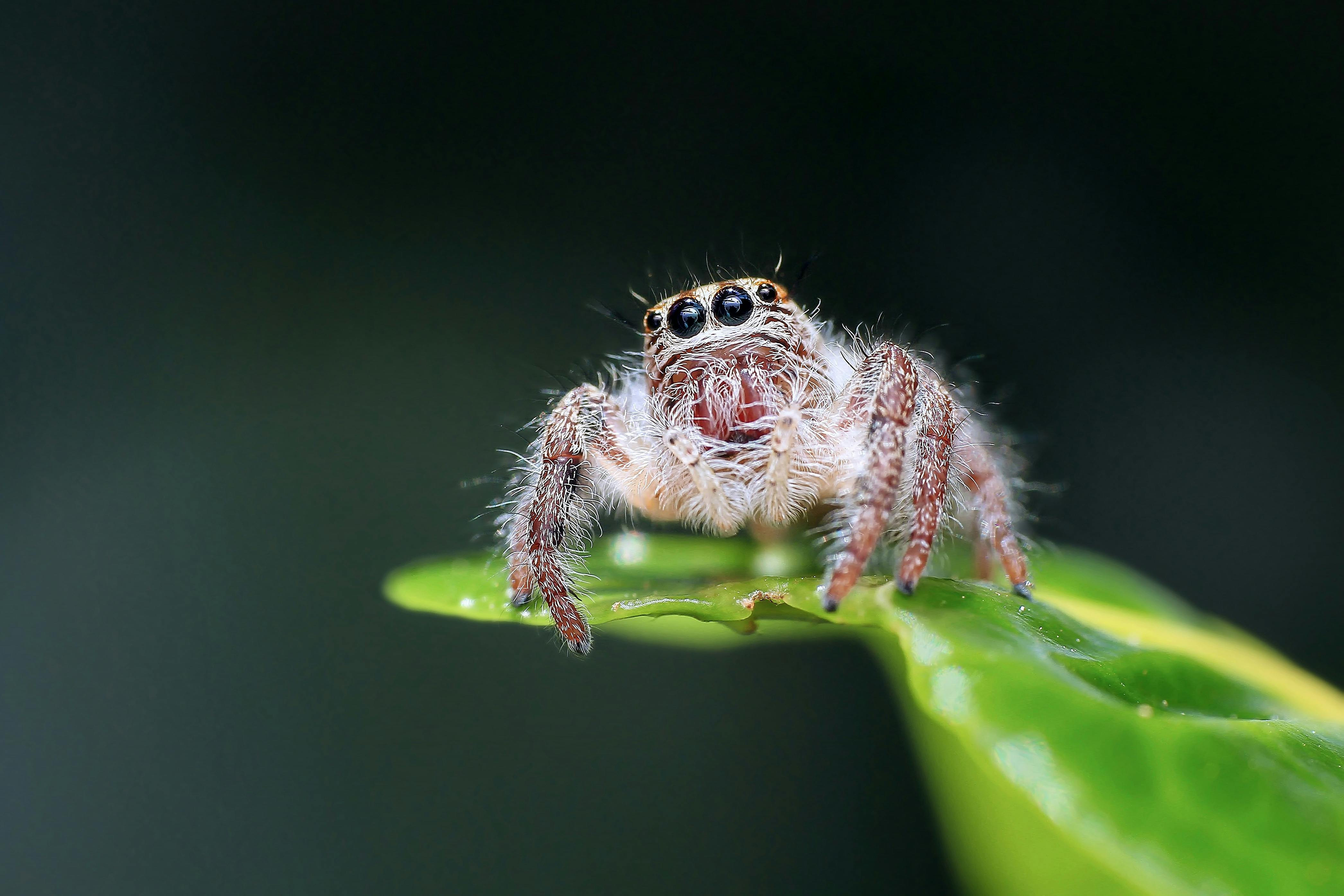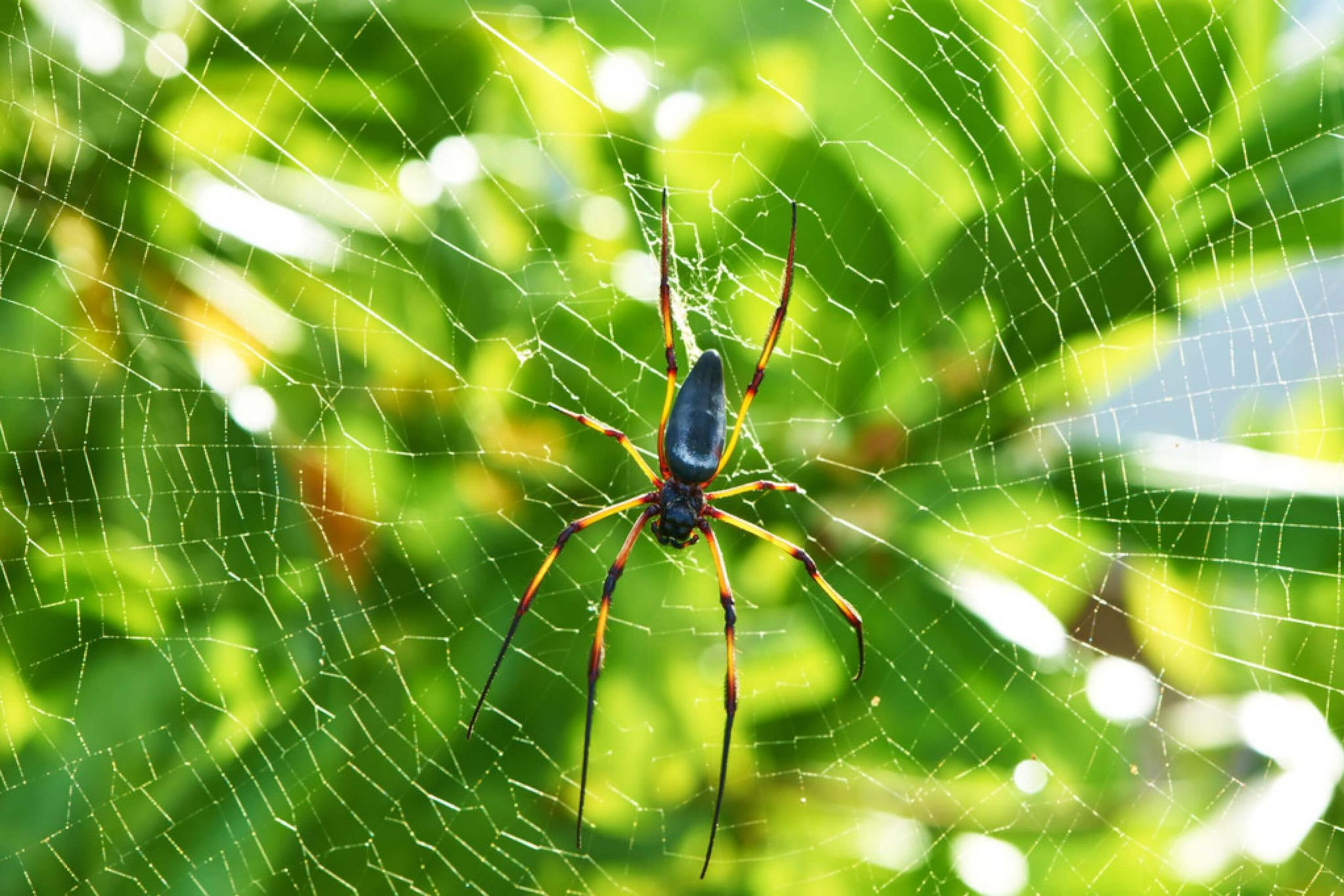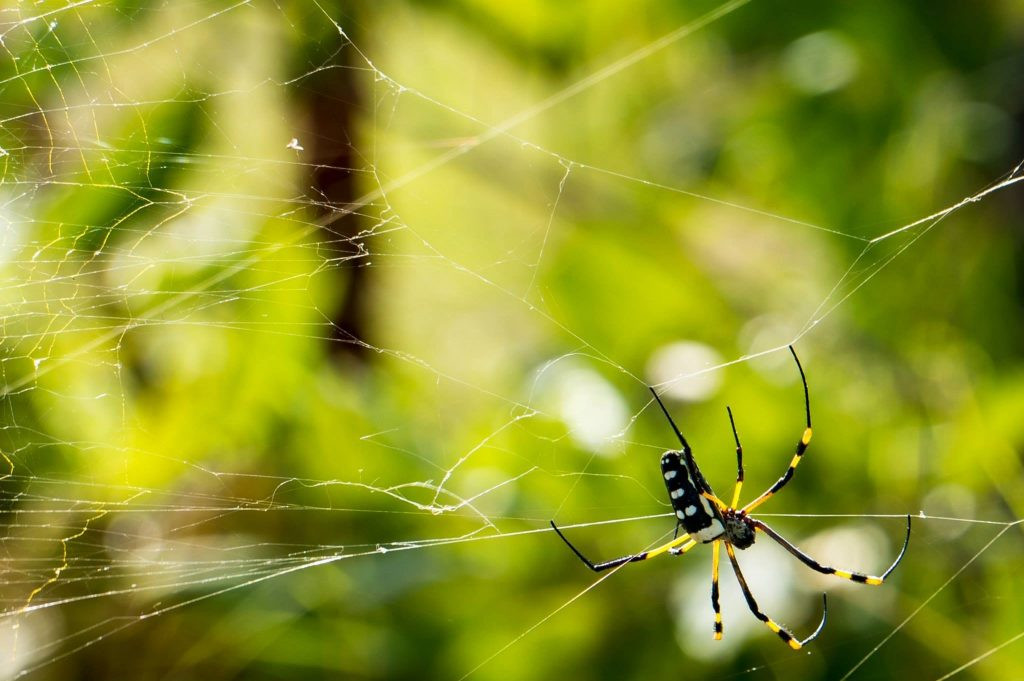A Spider Invasion?
Late summer and autumn is when we start to see spiders around the house. For some, encountering the eight-legged critters is too much to bear, including for some Look North viewers in East Yorkshire and Lincolnshire, who shared their recent experiences. However, spider expert and broadcaster Dr Tim Cockerill says there is really nothing to fear.
The Hull-born entomologist said spiders in the UK are "only dangerous if you happen to be a fly, or another small insect".
So, what's the truth about spiders in our homes?
Spiders In Our Homes: A Love Story
Several Look North viewers contacted the programme to report sightings, including Peter who woke to find a spider on his pillow. Tracey, from Boston, said she found the "magnificent specimen" pictured above in her bathroom. "Spiders don't usually bother me at all, and I would usually pick them up with my hands to put them outside," she said. "But I decided to pick this one up in a jug, [it was] just a little too large for me." Lee found a spider in his bath, which he named Shadow. "I gently picked him up and popped him outside," he said. "If you want to live and thrive, let the spider run alive."
Dr Cockerill explained that the reason we see so many spiders at this time of year is not because they're invading our homes, but because the adult male spiders are out looking for love. "This time of year we always see spiders in our homes far more often than we would do for the rest of the year," Dr Cockerill said. "Most people think it's because spiders are coming in and invading our homes, but this is almost certainly not the case. Almost all of the spiders that we see in our homes at this time of year have been there all-year-round, hiding in the cupboard under the stairs or under the sofa. What you are seeing in your houses are adult male spiders out looking for love."
Dealing With Spiders
For those not as brave as Lee, Dr Cockerill said a glass and card was the way to go. "Just slip it underneath and then pop it outside - the spider will go and live its life very happily outside in the garden," he added.
However, Dr Cockerill said there were benefits to leaving them be - especially cellar spiders - more commonly known as daddy long-legs, a non-native species which needs the warmth from our homes. "I prefer just to leave them in the corner of the room where they do a good job eating all the flies and mosquitoes," Dr Cockerill explained. He said the most common spider found in UK homes was the aptly named house spider.
Old Wives' Tales and Spider Phobias
Angela also contacted the programme to say her mum, Diane, was frightened of spiders, but had managed to partly overcome her fear by holding one. However, she said her mum still puts conkers in the corner of her rooms to keep the spiders at bay. "I don't think it works though," Angela said. Dr Cockerill agrees. He said: "There's nothing behind it - it's just an old wives' tale."
Dr Cockerill also spoke about the psychological aspect of spider fear. "Lots of people are afraid of spiders, and one of the interesting things is that we're not entirely sure why. We know that babies are not born with a fear of spiders, so it's probably something that is inherited from our family or from our parents. Because of this strange psychological quirk, it means that by using a bit of psychology we can often find a way around it."
The Truth About Spiders
To conclude, he said that he had been "playing around with spiders" his whole life - and had never been bitten. "There's nothing to worry about when it comes to spiders. They're just a fascinating part of our native wildlife."
Broadly speaking, spiders aren’t dangerous. There are 45,000 species of spider worldwide, but only around 30 can inflict a serious bite. So, you can take any random spider and say with 99.9 per cent confidence that it’s not dangerous. Even in Australia, the last recorded spider bite fatality was in 2018 and the one before that was in 1979, although this is partly due to effective antivenom treatment. In the UK, only 12 of the 650 native species have fangs that can pierce human skin. None are worse than a wasp sting, but there isn’t a single identifying feature to tell them apart from harmless species.
Remember the rhyme: Incy wincy spider climbed up the waterspout - In all likelihood, it's nothing to worry about.
This article is an answer to the question (asked by Aimee Barrett, via email) 'How can you tell if a spider is dangerous?'
To submit your questions, email us at [email protected], or message our Facebook, X, or Instagram pages (don't forget to include your name and location). Check out our ultimate fun facts page for more mind-blowing science.
Read more:



















